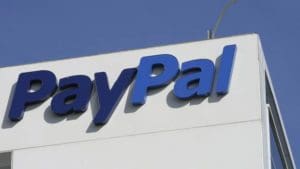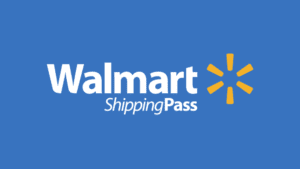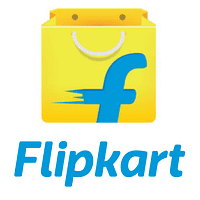 I cannot believe how fast time is going. And I don’t just mean the fact that it is already mid-May. Or that it is somehow 2016 (didn’t the Y2K scare just happen?). It is more the fact that today is my son’s sixth birthday. I can remember the day he was born like it was yesterday, and yet somehow he is finishing kindergarten, riding a two-wheeler, and learning to read. It is beyond scary how fast the time is going. In preparation for his birthday, my wife and I ordered him a pair of rollerblades from Amazon. When I opened the package, it brought back memories of a Logistics Viewpoints article I had written on the cost of over-packaging. As the photo on the left shows, the rollerblades came in an enormous box, with the smaller box inside (not pictured is all the packaging material). Just look at all that empty space that was shipped – they are literally shipping air, which reduces the number of packages that can be loaded on a truck. There has to be a better and more efficient way to package these things. But for now, I’m just going to enjoy his birthday.
I cannot believe how fast time is going. And I don’t just mean the fact that it is already mid-May. Or that it is somehow 2016 (didn’t the Y2K scare just happen?). It is more the fact that today is my son’s sixth birthday. I can remember the day he was born like it was yesterday, and yet somehow he is finishing kindergarten, riding a two-wheeler, and learning to read. It is beyond scary how fast the time is going. In preparation for his birthday, my wife and I ordered him a pair of rollerblades from Amazon. When I opened the package, it brought back memories of a Logistics Viewpoints article I had written on the cost of over-packaging. As the photo on the left shows, the rollerblades came in an enormous box, with the smaller box inside (not pictured is all the packaging material). Just look at all that empty space that was shipped – they are literally shipping air, which reduces the number of packages that can be loaded on a truck. There has to be a better and more efficient way to package these things. But for now, I’m just going to enjoy his birthday.
And now, on to the news.
- Amazon partners with Atlas Air Worldwide for cargo services
- PayPal Canada aims to boost sales with free return shipping
- Walmart tests subscription service
- Flipkart building mapping platform to help mark customer addresses more accurately
- com launches fresh grocery delivery
- Imports lower than last year, but still at near-record highs
 Amazon announced plans to double its fleet of jets for domestic package deliveries. The announcement comes on the heels of a deal with Atlas Air Worldwide in which Amazon will lease 20 Boeing 767 freights. This is the second deal Amazon has made this year to lease up to 20 jets as part of a larger plan to take control of its domestic shipping. The operation of the freighters with crew, maintenance, and insurance will last for seven years. Atlas Air said Amazon agreed to a so-called dry leasing by its Titan Aviation leasing unit, which have a term of 10 years. In a dry lease agreement, only the plane is given.
Amazon announced plans to double its fleet of jets for domestic package deliveries. The announcement comes on the heels of a deal with Atlas Air Worldwide in which Amazon will lease 20 Boeing 767 freights. This is the second deal Amazon has made this year to lease up to 20 jets as part of a larger plan to take control of its domestic shipping. The operation of the freighters with crew, maintenance, and insurance will last for seven years. Atlas Air said Amazon agreed to a so-called dry leasing by its Titan Aviation leasing unit, which have a term of 10 years. In a dry lease agreement, only the plane is given.
 PayPal Canada is introducing a new perk that customers have been looking for – free return shipping. Customers have grown accustomed to free shipping on just about anything they order, but if they need to return the item, many retailers shy away from offering that service for free. With Amazon offering free return shipping, many e-commerce retailers have been pressured into offering the same. A robust reverse logistics engine is necessary to make the return process as seamless as possible for both consumers and retailers. To that end, PayPal Canada is offering up to 10 refunds a year on online return shipping costs (up to $300 annually,) betting it will offset the extra cost with more e-commerce business.
PayPal Canada is introducing a new perk that customers have been looking for – free return shipping. Customers have grown accustomed to free shipping on just about anything they order, but if they need to return the item, many retailers shy away from offering that service for free. With Amazon offering free return shipping, many e-commerce retailers have been pressured into offering the same. A robust reverse logistics engine is necessary to make the return process as seamless as possible for both consumers and retailers. To that end, PayPal Canada is offering up to 10 refunds a year on online return shipping costs (up to $300 annually,) betting it will offset the extra cost with more e-commerce business.
 Walmart is testing a two day shipping subscription service and building a regional delivery network as it tries to rival Amazon. Walmart will rely on eight dedicated e-commerce warehouses around the country to fulfill orders. It will also rely on regional carriers to deliver more of its packages, moving it away from a dependence on FedEx. Last year Walmart introduced a test of three-day shipping via a service called ShippingPass; now, ShippingPass members will get free two-day shipping. This is all part of Walmart’s large investment in streamlining its supply chain operations.
Walmart is testing a two day shipping subscription service and building a regional delivery network as it tries to rival Amazon. Walmart will rely on eight dedicated e-commerce warehouses around the country to fulfill orders. It will also rely on regional carriers to deliver more of its packages, moving it away from a dependence on FedEx. Last year Walmart introduced a test of three-day shipping via a service called ShippingPass; now, ShippingPass members will get free two-day shipping. This is all part of Walmart’s large investment in streamlining its supply chain operations.
 Flipkart, India’s largest online retailer, is building a mapping platform to more accurately deliver goods to consumers. The platform is based on the data from MapmyIndia, where Flipkart owns a 34% stake. Flipkart Maps will help it mark customer addresses and landmarks more accurately to make more speedy and cost-effective deliveries. In congested areas, bad routes and mismatched information are all too common. The development of the Flipkart mapping platform is geared towards correcting these bad routes, bad addresses, and help to plan deliveries more efficiently.
Flipkart, India’s largest online retailer, is building a mapping platform to more accurately deliver goods to consumers. The platform is based on the data from MapmyIndia, where Flipkart owns a 34% stake. Flipkart Maps will help it mark customer addresses and landmarks more accurately to make more speedy and cost-effective deliveries. In congested areas, bad routes and mismatched information are all too common. The development of the Flipkart mapping platform is geared towards correcting these bad routes, bad addresses, and help to plan deliveries more efficiently.
 Jet.com is stepping into the growing business of online fresh groceries. The company is conducting a pilot test throughout New York City, New Jersey, Connecticut, Pennsylvania and Washington, D.C. This move brings Jet.com into direct competition with online delivery companies like Amazon, Instacart, Peapod and FreshDirect. These other companies typically charge a membership fee or delivery fees; Jet.com is differentiating itself by offering free delivery on all orders over $35. However, the company is only offering delivery in one to two days, rather than same-day, which may set it back.
Jet.com is stepping into the growing business of online fresh groceries. The company is conducting a pilot test throughout New York City, New Jersey, Connecticut, Pennsylvania and Washington, D.C. This move brings Jet.com into direct competition with online delivery companies like Amazon, Instacart, Peapod and FreshDirect. These other companies typically charge a membership fee or delivery fees; Jet.com is differentiating itself by offering free delivery on all orders over $35. However, the company is only offering delivery in one to two days, rather than same-day, which may set it back.
And finally, import cargo volume at the nation’s major retail ports is high. Just how high? It is expected to remain at some of the highest levels ever during the next few months, according to the monthly Global Port Tracker report released today by the National Retail Federation and Hackett Associates. However, this is still down from last year, when imports were at all-time highs. Ports covered by Global Port Tracker handled 1.32 million Twenty-Foot Equivalent Units (TEU) in March, the latest month for which after-the-fact numbers are available. That was down 14.2% from February (partly because of a carryover from Chinese New Year factory closings) and 23.7% from the all-time record high set in March 2015 after the West Coast port shutdown ended. April was estimated at 1.5 million TEU, down 0.8% from the same month last year. May is forecast at 1.57 million TEU; June at 1.56 million TEU; July at 1.61 million TEU; August at 1.62 million TEU; and September at 1.56 million TEU. All of these months are projected to be down year-over-year, but imports will remain high.
That’s all for this week. Enjoy the weekend and the song of the week, Cats in the Cradle by Harry Chapin.

















Leave a Reply